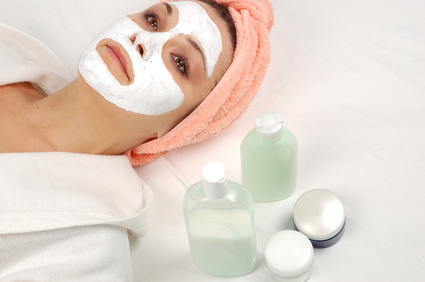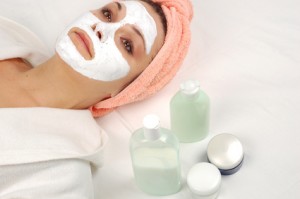
 I’ve warned you in the past about skin-lightening creams that contain hydroquinone, because lab studies have found it to be potentially cancer-causing. Alternative brighteners that contain ingredients like kojic acid and vitamin C are safer options.
I’ve warned you in the past about skin-lightening creams that contain hydroquinone, because lab studies have found it to be potentially cancer-causing. Alternative brighteners that contain ingredients like kojic acid and vitamin C are safer options.
A recent report by the “Chicago Tribune,” however, shows that we need to be even more cautious in our choices. After testing 50 skin-lightening creams, they found that six of them contained mercury, in amounts banned by federal law. Five of those had more than 6,000 parts per million, enough to potentially cause health damage over time.
Why would they find mercury in these creams? It blocks the production of melanin-that compound in the skin that gives it its color. There are other options for lightening, of course, but mercury is readily available and inexpensive. It’s also highly toxic, readily absorbed through the skin, and can affect vision, organs, and neurological functioning.
This is concerning not only because of the toxicity of mercury, but because the Food and Drug Administration (FDA) banned mercury in skin-bleaching or lightening products back in 1990. Unfortunately, the fact that these six products were available to customers is an example of the lack of testing that goes on with cosmetic products. The FDA says it simply can’t inspect all the products that may be available to consumers.
That means it’s up to us to police our own safety.
Unless we have our own testing laboratories, however, we’re not going to be able to tell if a cream contains mercury. We can, however, be more cautious in the brands we choose. The creams that tested high in mercury for this report, for example, were manufactured in Lebanon, China, India, Pakistan, and Taiwan. It makes no difference, though, where you buy the product, as these were available anywhere form large beauty-supply stores to herbal medicine shops to beauty salons. Retailers may order them over the Internet, buy them from overseas suppliers or bring them in personally from other countries.
What are your options? Research your brands. Since it’s more difficult for the FDA to inspect import products, you may want to stick with U.S. brands for lightening creams, or at least be sure your foreign brands are strict about safety. (The Chicago report found no mercury in a sample of “Fair & White,” for example, a lightener made in France.) Stick with safe companies like Marie Veronique Organics, Suki, Juice Beauty, and others that are conscientious about their choice of ingredients. Finally, fiercely protect your skin from the sun, as that is the biggest culprit in creating age spots and uneven skin tone.
Do you have a favorite safe skin-lightening product? Let us know.
Photo courtesy ebemobile via Flickr.com.

